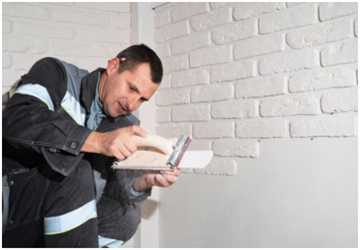Top 5 Ways to Save Money on Home Repairs

As a homeowner, one of the most daunting tasks is home repair. There's no getting around it - home repairs are expensive. Whether fixing a leaky faucet or repairing a damaged roof, the costs can quickly increase. However, there are ways to save money on home repairs without sacrificing quality or safety. This article will discuss the top 5 ways to save money on home repairs.

1.Do Your Research
The first step to saving money on home repairs is researching. Before hiring a contractor, ensure you know what needs to be repaired and how much it should cost. Get multiple quotes from different contractors to compare prices and services. You can also research DIY solutions to see if you can fix the problem yourself.
Additionally, research the contractor you're considering hiring. Look up their reviews online and ask for references. Good contractors will be transparent about their work and pricing and have positive reviews from previous customers.
2.Preventive Maintenance
Preventive maintenance is another great way to save money on home repairs. By keeping up with routine maintenance, you can catch small problems before they become big, expensive ones. Some examples of preventive maintenance include:
- Regularly cleaning gutters and downspouts to prevent water damage
- Checking and replacing HVAC filters to improve energy efficiency and prevent breakdowns
- Inspecting and sealing windows and doors to prevent drafts
- Flushing your water heater to remove sediment and prolong its life
- Regularly cleaning your appliances to prevent breakdowns
You can save money on major repairs by keeping up with these tasks.
3.Shop Around for Materials
When it comes to home repairs, materials can be a significant expense. However, you can save money by shopping around for materials. Compare prices at hardware stores and online retailers to find the best deal. You can also look for used or refurbished materials, such as appliances, furniture, or building materials. Websites like Craigslist or Facebook Marketplace are great places to find used items at a fraction of the cost of new ones.
4.Know When to DIY
Some home repairs require a professional, such as electrical or plumbing work. However, there are also many repairs you can do yourself. Most homeowners with basic tools and knowledge can do simple tasks like painting a room, replacing a light fixture, or fixing a leaky faucet.
Before attempting a DIY repair, research and ensure you have the necessary tools and skills. YouTube is a great resource for tutorials and step-by-step guides. If you need more time, start with a small project and work up to more complex repairs.
5.Consider Financing Options
Finally, consider financing options if you need to make a major repair but need more cash. Many home improvement stores offer financing plans, and some contractors may offer to finance. You can also look into personal or home equity loans, which may have lower interest rates than credit cards.
Before financing a repair, ensure you understand the terms and fees associated with the loan. Only borrow what you can afford to repay, and make sure you have a plan to pay off the loan as quickly as possible.
Energy-Saving Upgrades: How to Lower Your Home Repair Costs by Reducing Energy Consumption
- Conduct a Home Energy Audit: Identifying Areas for Improvement
- Insulate Your Home: Reduce Heat Loss and Save on Heating Costs
- Upgrade to Energy-Efficient Appliances: Reducing Energy Consumption and Saving Money
- Switch to LED Lighting: Lower Energy Usage and Decrease Lighting Costs
- Install a Programmable Thermostat: Reducing Energy Consumption and Lowering Utility Bills
- Seal Air Leaks: Preventing Heat Loss and Saving on Energy Costs
- Install Low-Flow Showerheads and Faucets: Lowering Water Usage and Costs
- Plant Trees and Shrubs: Providing Shade and Lowering Cooling Costs
- Install Solar Panels: Harnessing Renewable Energy and Reducing Energy Bills
- Replace Windows: Improving Insulation and Reducing Energy Consumption
- Use Energy-Saving Power Strips: Lowering Energy Usage of Electronics and Appliances
- Install Ceiling Fans: Reducing Cooling Costs and Increasing Energy Efficiency
- Reduce Water Heater Temperature: Lowering Energy Usage and Saving on Utility Bills
- Consider Geothermal Heating and Cooling: Using the Earth's Natural Temperature to Heat and Cool Your Home
- Regularly Maintain HVAC Systems: Keeping Equipment Running Efficiently and Reducing Energy Consumption.
FAQ
Q: What kind of home repairs can I do myself?
A: You can do many home repairs yourself, especially if they are minor or require basic skills. Some examples of home repairs you can do yourself include fixing leaky faucets, replacing light bulbs, repairing drywall holes, painting walls, replacing door handles, or cleaning gutters. However, you should always consider your skills, tools, and safety before attempting any repair.
Q: How can I find a reliable handyman?
A: To find a reliable handyman, you can ask for referrals from friends, family, or neighbors who have used their services before. You can also search online for handyman services in your area and read reviews from previous customers. When hiring a handyman, ensure they are licensed, insured, and experienced in the necessary repair.
Q: How often should I perform preventive maintenance on my home?
A: The frequency of preventive maintenance depends on the type of system or appliance and the manufacturer's recommendations. However, as a general rule, you should perform preventive maintenance on your home at least once a year. This can include cleaning gutters, changing air filters, inspecting your roof, checking for water leaks, and testing smoke detectors.
Q: Why is preventive maintenance important for saving money on home repairs?
A: Preventive maintenance is important for saving money on home repairs because it helps prevent major breakdowns and costly repairs. By performing regular maintenance tasks, you can identify and address minor issues before they become major problems. This can extend the lifespan of your home's systems and appliances, reduce the frequency of repairs, and save you money on energy bills.
Conclusion
Home repairs can be expensive, but there are many ways to save money without sacrificing quality or safety. By researching, keeping up with preventive maintenance, shopping around for materials, knowing when to DIY, and considering financing options, you can save on home repairs and keep your home in good condition. Remember, a little prevention and preparation can go a long way in saving you money in the long run.





